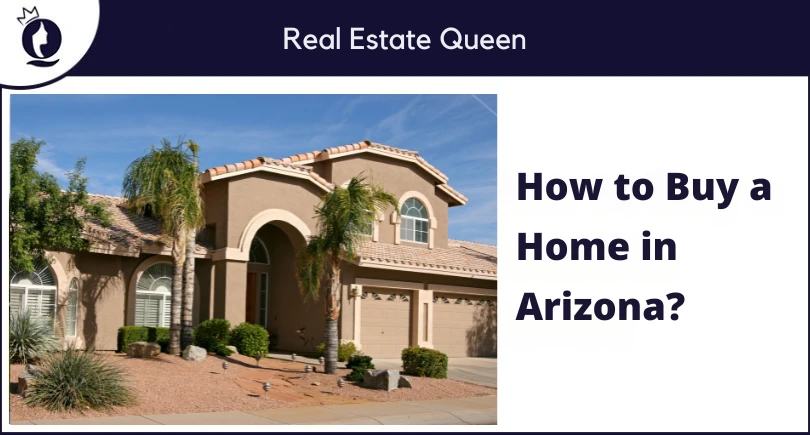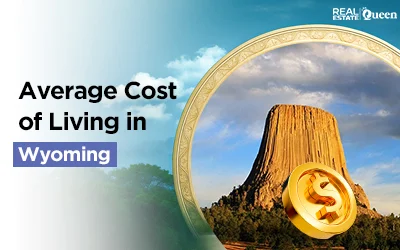
In 2025, Arizona’s housing market presents a unique opportunity for homebuyers. The average price of a home in Arizona is around $441,000, down 2.5% from last year, creating a more balanced market.
This guide provides a detailed plan for buying a home in Arizona, navigating its challenges while leveraging its benefits.
Key Takeaways
- Step 1: Assess finances & credit.
- Step 2: Prepare down payment & closing costs
- Step 3: Get mortgage pre-approval.
- Step 4: Work with a licensed Arizona agent.
- Step 5 Search for property & make offer.
- Step 6 Complete due diligence & inspections.
- Step 7 Finalize closing.
Current Arizona Housing Market Overview (2025)
The Arizona housing market is experiencing a shift in 2025. Buyers now have more power with a 58-day average market time and 22% inventory growth. Notably, homes sold with price drops have risen 35.3% year-over-year, giving buyers an excellent chance to secure a property in the Grand Canyon State.
How to Buy a House in Arizona: 7 Steps
Figure Out Your Finances
Before you look for homes for sale in Arizona, setting a solid budget is essential. Arizona’s cost of living is about 18% higher than the national average, with housing alone costing 15% more than the US baseline. Carefully plan for expenses beyond just your down payment and mortgage.
Step 1: How Much House Can You Afford in Arizona?
Arizona’s average property tax is 0.60%, below the national average. Homeowner’s insurance averages $2,309 yearly, rising to $3,150 in Phoenix and dropping to $2,225 in Tucson. While not state-mandated, lenders require hazard insurance, with higher premiums in wildfire-prone areas like Flagstaff and Prescott.
Get Your Down Payment Ready
In Arizona, down payments range 3%–20%. FHA loans require 3.5% down with a 580 credit score or 10% down for scores as low as 500. First-time buyers can access programs like Home Plus Down Payment Assistance, AZ Industrial Development Authority HOME+PLUS, and the Pathway to Purchase Program.
Get Pre-Approved for a Mortgage
Arizona borrowers face average mortgage rates of 6.92% for a 30-year fixed and 6.23% for a 15-year fixed. To apply, lenders typically require documentation including ID, Social Security number, pay stubs, W-2s, tax returns, bank and asset statements, employment verification, and credit authorization.
Step 2: Find Your Dream Home in Arizona
Once you’ve set your budget, you’re more equipped to find your dream home faster. Houzeo, Arizona’s best home buying website, allows you to browse through the latest listings with smart filters for price, ZIP code, schools, etc. Save searches, set alerts, and navigate Arizona’s market efficiently—without paying broker fees.
Whether you are looking for homes for sale in Tucson, Phoenix, or Flagstaff, the best place to buy in Florida depends on your priorities:
- Phoenix offers fast-moving inventory and urban amenities.
- Flagstaff appeals for an outdoor lifestyle
- Tucson supports affordability and scenic views. Compare costs and commute times for each region.
Step 3: Make an Offer That Wins
With Arizona’s tight inventory, offers are highly competitive. Buyers usually put down 1%–2% of the purchase price as earnest money and should include key contingencies for financing and inspection. Using recent sales data and an agent’s expertise can further strengthen a bid in multiple-offer situations.
Step 4: The Crucial Due Diligence Period
Inspection windows typically last 10 days after contract signing; most physical inspections take 2–4 hours. Arizona-specific essential checks include:
- Termite (wood-destroying organisms) – Essential to detect and prevent damage from pests common in Arizona’s climate.
- Roof inspection– Checks for wear or damage from sun exposure and monsoon storms, ensuring structural integrity.
- Pool/spa (when applicable) – Confirms all equipment is safe, functional, and meets local codes.
- Radon (northern regions like Flagstaff) – Measures naturally occurring radon gas, which is more prevalent in northern Arizona soils.
Step 5: Secure Your Financing and Insurance
Arizona has no legal requirement for homeowner’s insurance, but lenders require hazard insurance. Flood coverage is mandatory in FEMA zones, and wildfire insurance is strongly advised in flagged counties like Flagstaff and Prescott.
Step 6: Prepare for Closing Day
Arizona closing costs typically add 2%–5% of the purchase price, with specific state requirements:
- Lending/appraisal fees – Covers the cost of processing your loan and determining the home’s market value.
- Escrow/title charges – Pays for title searches, insurance, and the secure handling of funds during closing.
- HOA/Community fees – Homeowners associations typically charge $30–$300 per month, with additional $100–$800 yearly development fees for shared amenities and maintenance.
- No attorney required for standard Arizona closings – Buyers and sellers can complete most transactions without legal representation, though some choose an attorney for added guidance.
Step 7: Welcome Home!
Arizona state-specific homeowner perks:
- Homestead exemption – Protects up to $250,000 of a homeowner’s equity from unsecured creditors, offering financial security.
- Relatively low property tax rate – Arizona’s average rate of 0.60% keeps annual taxes well below the national average.
- No state-mandated homeowners insurance – While not required by law, lenders typically insist on hazard insurance to protect their investment.
Tips for Arizona Homebuyers: Do’s and Don’ts
Do’s
- Get pre-approved before searching
- Compare home insurance quotes and coverage
- Evaluate commute time, flood and wildfire risk
- Inspect for termites, roof quality, and radon
Don’ts
- Skip due diligence on HOA fees or community rules
- Ignore local market price trends—especially in Phoenix, Flagstaff, and Prescott
- Overlook future resale value based on school districts and amenities
Conclusion
Buying a home in Arizona presents both challenges—like swift-moving inventory and localized insurance considerations—and unique advantages such as low property taxes, diverse geography, and robust buyer support programs. Smart planning and the right location can provide both financial and lifestyle benefits.
Frequently Asked Questions
How long does it take to buy a house in Arizona?
The entire home-buying process in Arizona, from pre-purchase preparation to closing, typically takes 30–45 days, faster than most other states due to an attorney requirement.
➡️Read more to know more about preparation for the closing day
What credit score do I need to buy a house in Arizona in 2025?
The minimum credit score for FHA loans requires a minimum of 580 for a low down payment. Conventional loans generally need at least 620
What is the cheapest place to buy a house in Arizona?
Some of the cheapest cities to buy a home in Arizona include Tucson and Yuma, which offer some of the most affordable housing with rising inventory, safe neighborhoods, and diverse job opportunities.





